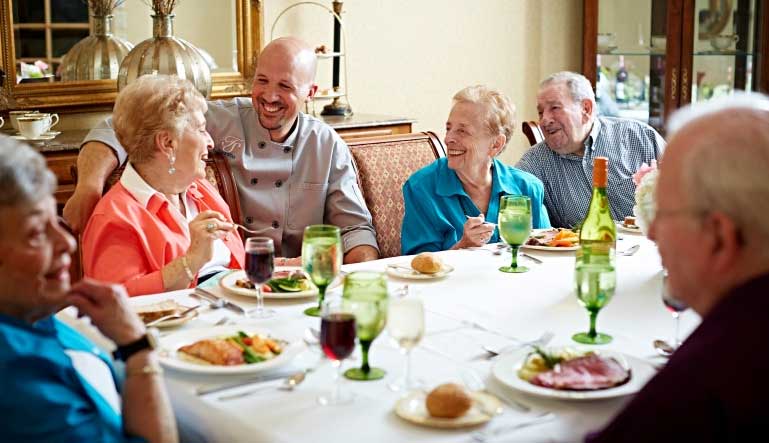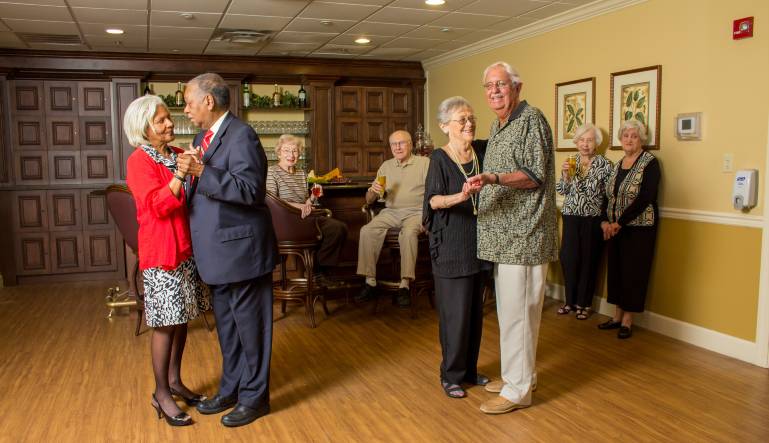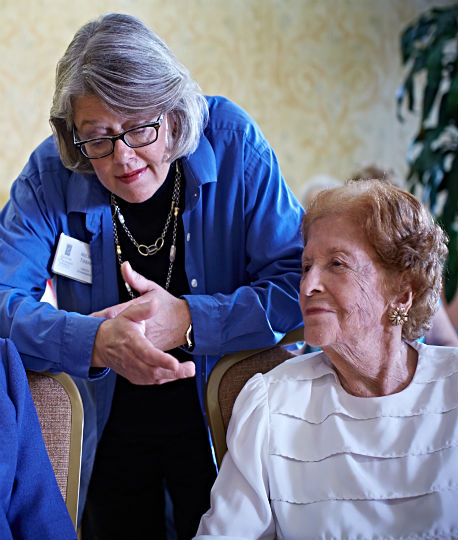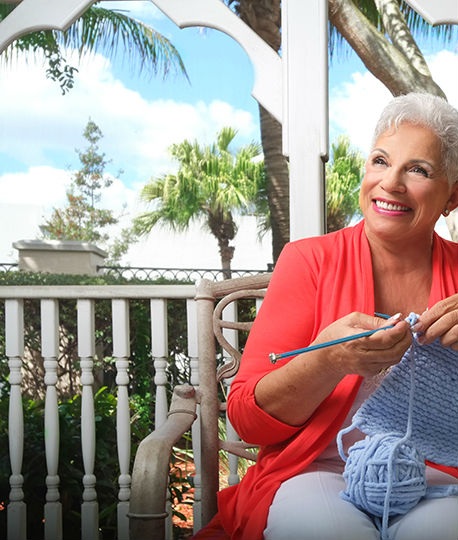In the lingo-heavy world of senior living, it can be hard to know the difference between terms like “senior apartments” and “independent living communities.” Sounds pretty similar, right? Look a little closer at their definitions, though, and you’ll find one offers far more than the other. Here’s a breakdown of both senior apartments and independent living communities that can help you decide which is the best fit for you or your loved one. Can you spot the difference?
What are senior apartments?
In the same way that senior discounts are just discounts created for a certain age group, senior apartments are pretty similar to regular apartments, they’re just restricted to, and designed for, older adults. Most often the age requirement for a senior apartment community is 55 or 62. The complex will need to be compliant with the HUD regulations for age discrimination. The senior apartment buildings likely have no or limited stairs, are handicap accessible, and have handrails in the bathroom to accommodate the needs of older adults with limited mobility. Senior apartments differ from 55+ communities in that they typically do not have the amenities that a 55+ community offers. In some instances, senior apartments are subsidized based on income.
Like many things in life, there are also more upscale senior living options for those that can afford the high price tag. Luxury senior living apartments promise a premium lifestyle with floorplans featuring gleaming new surfaces and all the latest gadgets, along with access to exclusive amenities. It all comes at a steep cost, though. Luxury senior apartments can quickly eat away at a retirement nest egg but it is possible to enjoy luxury senior living.
What is independent living?
If senior apartments are like a hotel, then consider independent living communities (also called retirement communities) a resort. For example, accommodations in a Five Star Senior Living independent living community range from spacious, beautifully designed apartments to maintenance-free villas and cottages. They’re best for more active seniors who want to maintain their independence and don’t require the type of additional support you’d find in assisted living. Independent living communities offer everything senior apartments do and so much more.
What are the key differences between senior apartments and independent living?
Though both senior apartments and independent living communities offer senior living options for older adults, independent living communities offer so much more than just a place to live. They also welcome you into a tight-knit community where friends become family and everything you need is right at your doorstep. Here are a few other key differences between the two to remember:
Senior Apartments vs. Independent Living Comparison Table |
||
|
Senior Apartments |
Independent Living |
|
| What services are provided? | Senior apartment complexes offer the convenience of providing maintenance of the building, grounds and apartment. | Independent living communities offer a stress-free lifestyle where the hassles of life—like home upkeep, cooking and cleaning—are taken care of so you can spend more time enjoying all the activities and amenities your community offers. |
| What amenities are provided? | There may also be a clubhouse with planned social activities. The availability and quality of amenities can vary widely by complex. | Convenient access to on-site shared dining spaces, pools, libraries, game rooms and a wide variety of community activities ensures that there’s never a shortage of ways to spend your days in independent living. |
| How much does it cost? | The cost to rent a senior apartment varies. There are, however, affordable options like low-income apartments that cap rent and utilities at about 30 percent of income. Market rate apartments with costs at or slightly below the cost of local all-age apartments and luxury senior apartments are other available options. | Communities vary widely in terms of cost, which can range from $2,000 to $5,000 or more a month. A number of factors determine what you pay, like the type of community and location. Download our FREE Guide to the Cost of Senior Living eBook to learn more and get the answers you need. |
| How do I find a community near me? | Your best bet is to search online for senior apartments or contact your local housing authority and ask about senior apartment options in your area. | The best place to start is to search online for “independent living communities” or use Five Star’s easy Find a Community search tool to discover select communities in your area. |
The Five Star Difference: Stress-Free Independent Living, Reimagined
In an independent living community, you can truly leave your worries behind and focus on the things that matter most. Ready to experience the Five Star difference? See if there’s a Five Star Senior Living community near you and schedule a tour to discover just how much you have to look forward to.










